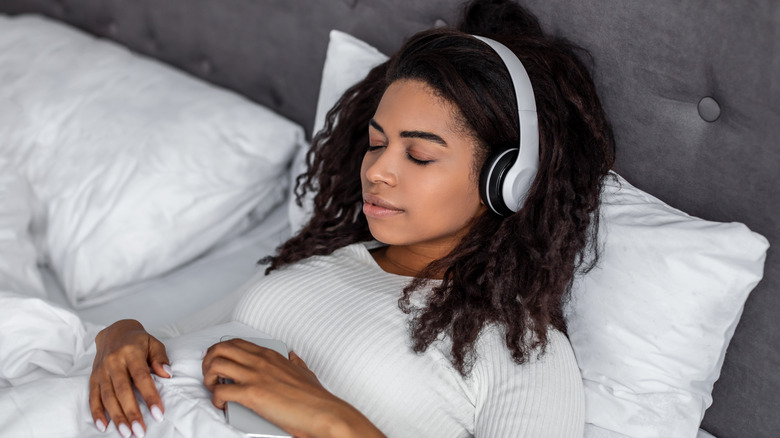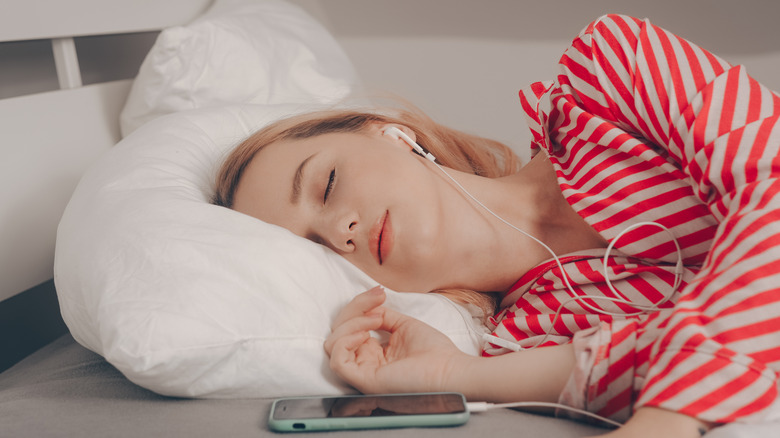Is Sleeping With Headphones Bad For You?
Many of us associate quiet with peace. A little peace and quiet and a cool, dark bedroom is the dream ambiance for a good night's rest. However, there are also many who need a little sound to calm them down. "Some people, when they're alone in bed at night, they're kind of alone with their thoughts, and they have circulating thoughts a lot. ... They're thinking about this or that," Rafael Pelayo, a clinical professor at Stanford University's School of Medicine in the sleep medicine division, told The Washington Post. "They'll listen to a podcast, or listen to music or something, or turn the TV on to block out their thoughts."
If you prefer a little sound while you get some shut-eye, that's all well and good. Although it can become a problem if your partner is disturbed by your needed background noise. This is why so many of us are dozing off with headphones in our ears. But is that a safe choice for our overall health?
Keep the volume down
Unfortunately, there are a few downsides to sleeping with your headphones on. You may be using them to hear some soothing music, or perhaps you're blocking out the noisy railroad next to your bedroom window. Whatever the reason, DawnStudy reveals that sleeping with your headphones can increase the buildup of ear wax and may cause redness, swelling, and irritation within your ear. In addition, your sleep aid podcast or music may be blocking out necessary noises –- such as a fire alarm or tornado sirens –- that threaten your safety.
That being said, there are many headphones designed to be in your ears while you sleep. The Washington Post claims that there are sleep headphone models that sell from less than $20 to more than $200. "Provided that the intensity levels [of sound] are similar, there probably isn't a clear 'safest' choice for headphones," says Ashley King, an audiologist at George Washington University Medical Faculty Associates. "The best style is probably the one that is most comfortable for you."
If you need sleep headphones to fall asleep, then invest in ones that feel the most comfortable to you. And perhaps don't blast the volume too high so you can be aware of any emergency warnings. If you do notice your ears have started to bother you, discontinue use until you can talk with your doctor or a specialist about alternative options.


